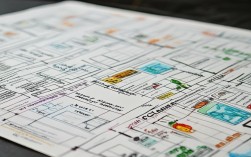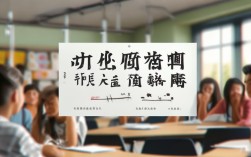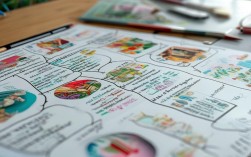不定代词思维导图
中心主题:不定代词

核心定义
- 指代不明确的人、事或物,没有明确指出是哪一个。
- 在句中可作主语、宾语、表语或定语。
- 通常与单数动词连用,但
few,many,several,both,all等可与复数动词连用。
主要分类与用法
指人
- someone / somebody
- 含义: 某人,有人(肯定)。
- 用法: 通常用于肯定句,作主语时,谓语用单数。
- 例句: Someone is knocking at the door. (有人在敲门。)
- anyone / anybody
- 含义: 任何人,无论谁(疑问句、否定句或条件句中)。
- 用法: 用于疑问句、否定句或条件从句,也可用于肯定句,表示“任何一个人”。
- 例句: Is anybody here? (有人吗?) I don't know anyone here. (我不认识这里任何人。)
- no one / nobody
- 含义: 没有人(完全否定)。
- 用法: 只能指人,不能指物,作主语时,谓语用单数,其后不接
of短语。 - 例句: Nobody is perfect. (没有人是完美的。)
- everyone / everybody
- 含义: 每个人,大家(指群体中的所有成员)。
- 用法: 强调整体,作主语时,谓语用单数,其后不接
of短语。 - 例句: Everybody should finish their homework. (每个人都应该完成作业。)
指物
- something
- 含义: 某事,某物(肯定)。
- 用法: 通常用于肯定句。
- 例句: I want to tell you something important. (我想告诉你一些重要的事。)
- anything
- 含义: 任何事,任何东西(疑问句、否定句或条件句中)。
- 用法: 用于疑问句、否定句或条件从句,也可用于肯定句,表示“任何事”。
- 例句: Do you want anything to drink? (你想喝点什么吗?) I don't have anything to do. (我没事可做。)
- nothing
- 含义: 没有任何东西(完全否定)。
- 用法: 作主语时,谓语用单数,可被
not修饰,构成部分否定。 - 例句: Nothing is difficult if you put your heart into it. (世上无难事,只怕有心人。)
- everything
- 含义: 一切,所有事情。
- 用法: 强调整体,作主语时,谓语用单数。
- 例句: Everything is ready for the party. (派对的万事俱备。)
指人和物
- someone / somebody, anyone / anybody, no one / nobody, everyone / everybody 也可指代不确定的人。
- something, anything, nothing, everything 也可指代不确定的事物。
表示数量
- many / much
- 含义: 许多。
- 用法:
many修饰可数名词复数;much修饰不可数名词。 - 例句: Many students passed the exam. (许多学生通过了考试。) There isn't much water left. (没剩多少水了。)
- few / a few
- 含义: 少数,几乎没有 / 一些,几个。
- 用法:
few(很少,几乎没有) 表示否定;a few(一些) 表示肯定,都修饰可数名词复数。 - 例句: He has few friends, so he feels lonely. (他几乎没有朋友,所以他感到孤独。) I have a few questions to ask. (我有一些问题要问。)
- little / a little
- 含义: 很少,几乎没有 / 一点儿,一些。
- 用法:
little(很少,几乎没有) 表示否定;a little(一点儿) 表示肯定,都修饰不可数名词。 - 例句: There is little time left. We must hurry. (没剩多少时间了,我们必须快点。) There is a little sugar in the jar. (罐子里还有一些糖。)
- some / any
- 含义: 一些,有些。
- 用法:
some通常用于肯定句;any用于疑问句和否定句,但在表示建议、请求或期望得到肯定回答的疑问句中,常用some。 - 例句: I need some help. (我需要一些帮助。) Do you have any questions? (你有问题吗?) Would you like some coffee? (想来点咖啡吗?)
- both / all
- 含义: 两者都 / 所有的都。
- 用法:
both指两者;all指三者或三者以上,作主语时,谓语动词用复数。 - 例句: Both of my parents are teachers. (我的父母都是老师。) All of the students are here. (所有的学生都在这里。)
- either / neither
- 含义: (两者中)任意一个 / (两者中)没有一个。
- 用法:
either表示肯定;neither表示否定,都指两者,作主语时,either谓语用单数或复数均可,neither谓语用单数。 - 例句: You can take either road. (两条路你都可以走。) Neither of the answers is correct. (两个答案都不对。)
- none
- 含义: 没有一个,没有任何东西或人。
- 用法: 可指人或物,既可指两者也可指两者以上,作主语时,谓语可用单数或复数,但更常用单数。
- 例句: None of us is perfect. (我们中没有一个是完美的。) None of the books are interesting. (这些书都不有趣。)
表示“其他的”
- other / others / the other / the others
- other: 泛指“其他的,别的”,后接名词单数或复数。
- 例句: I need other books. (我需要别的书。)
- others: 泛指“其他人或物”,相当于
other + 名词复数,单独使用。- 例句: Some students are in the classroom, others are on the playground. (一些学生在教室里,其他的在操场上。)
- the other: 特指“两者中的另一个”。
- 例句: I have two pens. One is red, the other is blue. (我有两支笔,一支是红色的,另一支是蓝色的。)
- the others: 特指“其余的(全部)”。
- 例句: We are five. Two of us are boys, the others are girls. (我们有五个人,其中两个是男孩,其余的是女孩。)
- other: 泛指“其他的,别的”,后接名词单数或复数。
表示“一些”
- some of / any of / most of / many of / much of / all of / none of
- 用法:
of后接名词复数或代词宾格,作主语时,谓语动词的数由of后面的名词或代词决定。 - 例句: Some of the water is polluted. (水的一部分被污染了。 -
water不可数,用单数) Some of them are from China. (他们中的一些人来自中国。 -them是复数,用复数)
- 用法:
核心要点与易错点
| 要点/易错点 | 解释 | 例句 |
|---|---|---|
| 肯定与否定 | some 用于肯定句;any 用于疑问/否定句。 |
I have some money. (肯定) Do you have any money? (疑问) I don't have any money. (否定) |
| 修饰关系 | many (可数), much (不可数) few / a few (可数), little / a little (不可数) |
many mistakes (许多错误) much trouble (许多麻烦) a few friends (几个朋友) a little milk (一点牛奶) |
| 范围限定 | both (两者), all (三者及以上) either (两者中任一), neither (两者都不) |
Both my hands are cold. (两只手都冷) All my fingers are cold. (所有手指都冷) You can sit on either chair. (两个椅子随便坐) You can't sit on neither chair. (两个椅子都不能坐) |
| 指代范围 | the other (两者中的另一个) others (泛指其他人/物) the others (特指其余的全部) |
I have two brothers. One is a doctor, the other is a teacher. Some like apples, others like bananas. There are ten students. Three are boys, the others are girls. |
none 的用法 |
指两者或以上,可与 of 连用,谓语可用单数或复数。 |
None of the students is/are late. (没有一个学生迟到。) |
| 复合不定代词 | someone, anything 等作主语时,其反代词用 they/them/their。 |
Everyone should do their best. (每个人都应该尽他们最大的努力。) |











